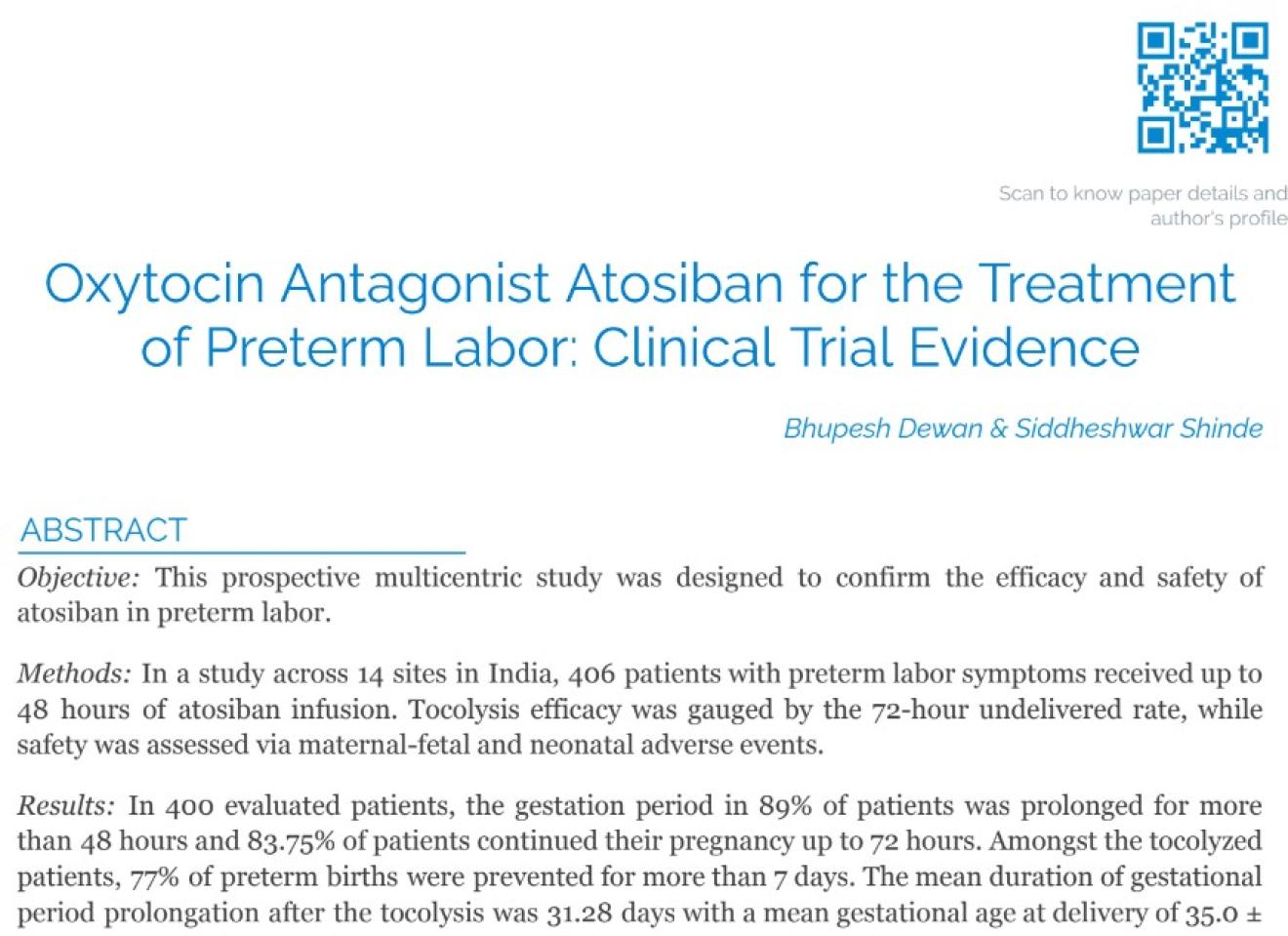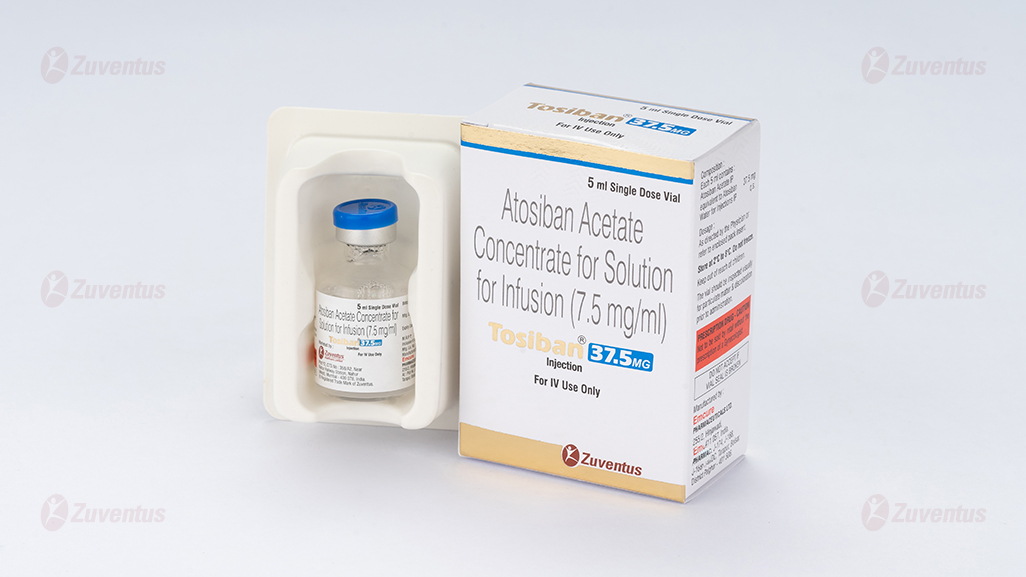Oxytocin Antagonist Atosiban for the Treatment of Preterm Labor: Clinical Trial Evidence

Abstract
Objective: This prospective multicentric study was designed to confirm the efficacy and safety of atosiban in preterm labor.
Methods: In a study across 14 sites in India, 406 patients with preterm labor symptoms received up to 48 hours of atosiban infusion. Tocolysis efficacy was gauged by the 72-hour undelivered rate, while safety was assessed via maternal-fetal and neonatal adverse events.
Results: In 400 evaluated patients, the gestation period in 89% of patients was prolonged for more than 48 hours and 83.75% of patients continued their pregnancy up to 72 hours. Amongst the tocolyzed patients, 77% of preterm births were prevented for more than 7 days. The mean duration of gestational period prolongation after the tocolysis was 31.28 days with a mean gestational age at delivery of 35.0 ± 3.15 weeks. Singleton and twin pregnancy prolongation rates for 72 hours were 84.95% and 67.86% respectively. Birth weight of more than 2500 grams was in 54.44% of neonates and an APGAR score of more than 7 after 5 minutes was in 91.82% of neonates. Patients receiving atosiban were more likely to have nausea (2.71%), tachycardia (2.46%), and headache (1.97%). No new or unexpected adverse events were reported in this study.
Oxytocin Antagonist Atosiban for the Treatment of Preterm Labor: Clinical Trial Evidence Citation: Dewan B, Shinde S. Oxytocin Antagonist Atosiban for the Treatment of Preterm Labor: Clinical Trial Evidence. London Journal of Medical and Health Research. 2024;24(1):35-45.

